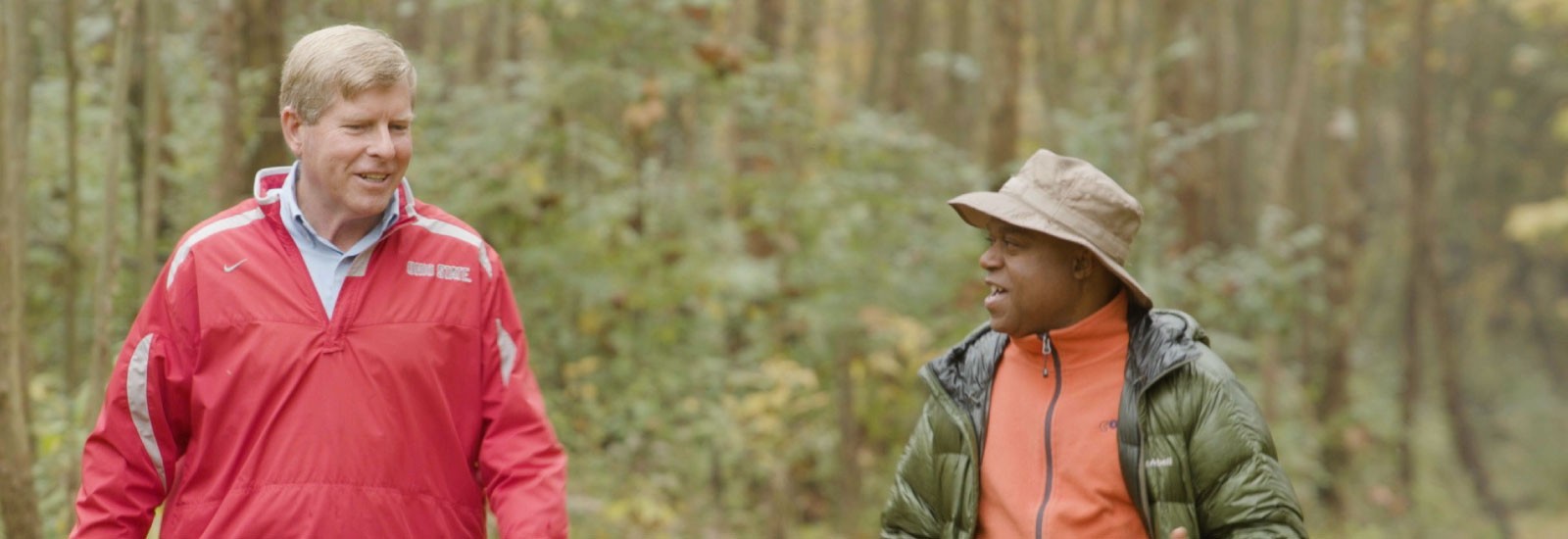Between the COVID-19 pandemic, climate change and our growing reliance on technology, science has, perhaps, never been more important in our society.
Yet, people often feel like they don’t understand – or can’t comprehend – the scientific issues that play such a vital role in our daily lives.
A new television series, a partnership between COSI (the Center of Science and Industry) in Columbus and The Ohio State University, hopes to improve that understanding.
“There’s this growing science illiteracy, so the idea of making science accessible and exciting has been a passion of mine personally,” said Frederic Bertley, president and CEO of COSI and host of the show, “QED With Dr. B.” “How can we make science engaging and exciting, and how can we take it to the next level for adults?”
And make no mistake: COSI is often considered a place where kids can learn about science and technology. But “QED With Dr. B,” which will be broadcast weekly on Wednesdays, is geared entirely toward adults.
The first episode “Bacteria, Superbugs and Antibodies” airs tonight at 7:30.
The episode features Thomas Wittum, professor of veterinary medicine at Ohio State, talking about research identifying antibiotic-resistant bacteria in rivers and at a livestock farm in the U.S., and Emily Feyes, director of Ohio State’s veterinary medical center antimicrobial stewardship program, discussing ways people and animals can stay safe from drug-resistant bacteria. The episode also features Yizhou Dong, associate professor of pharmaceutics and pharmacology at Ohio State, who has developed a way to use nanotechnology to treat late-stage sepsis.
Bertley said the goal of the series is to give people the same basic understanding of science that they have of other disciplines.
“No one is expecting you to be Maya Angelou or William Shakespeare, but you should know how to read and write. No one is expecting you to be a great mathematician, but you should know numbers and how to count and add and subtract,” he said. “In the same way, you don’t have to be a cutting-edge engineer, but you should know something about science, technology and engineering.”
Bertley said the series aims to humanize scientists: “They’re not these walking robotic people, they read books, they go to Starbucks, they work out, they fail on their resolutions like the rest of us do.” And, he said, it is designed to make science accessible.
“We don’t dumb it down, but we’re Socratic about it: We ask questions and the answers that come up are not a bunch of gobbledygook,” he said. “I’m hoping people might hear something cool and think, ‘Hey, maybe I’ll Google that.’
“It’s really built around this concept that science is everywhere and science is for everyone,” he said. “Think about the first things you do in the morning – maybe you turn off your alarm, check your phone, take a shower. There’s so much engineering and technology and science that goes into each of those things. People should know about them and be excited about them.”
The series will feature scientists from around the country, including many from Ohio State.
One upcoming episode will focus on race in science – Kelly Capatosto, senior research associate at Ohio State’s Kirwan Institute for the Study of Race and Ethnicity, will talk about implicit bias and how it can even affect our technology.
And then, in perhaps the most timely topic, QED With Dr. B will tackle viruses. Linda Saif, a distinguished professor of veterinary science at Ohio State’s Wooster campus and an expert on coronaviruses, will explain how viruses jump from species to species, and Matthew Sullivan, a professor of microbiology and Sustainability Institute affiliated faculty member, will talk about the connections between viruses and bacteria in our oceans.
Other episodes focused on climate change will feature Lonnie Thompson and Ellen Mosley Thompson, senior research scientists and Sustainability Institute affiliated faculty members at Ohio State’s Byrd Polar and Climate Research Center, who have traveled the globe researching the effects of climate change on the world’s ice; John Brooke, distinguished professor of history, explaining the impact of humans on climate throughout history; and Aaron Wilson, an atmospheric scientist at the Byrd Center and Sustainability Institute affiliated faculty member.
